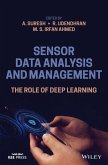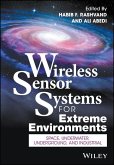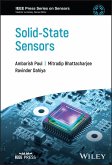Explore an insightful summary of the major self-contained aiding technologies for pedestrian navigation from established and emerging leaders in the field Pedestrian Inertial Navigation with Self-Contained Aiding delivers a comprehensive and broad treatment of self-contained aiding techniques in pedestrian inertial navigation. The book combines an introduction to the general concept of navigation and major navigation and aiding techniques with more specific discussions of topics central to the field, as well as an exploration of the future of the future of the field: Ultimate Navigation Chip (uNavChip) technology. The most commonly used implementation of pedestrian inertial navigation, strapdown inertial navigation, is discussed at length, as are the mechanization, implementation, error analysis, and adaptivity of zero-velocity update aided inertial navigation algorithms. The book demonstrates the implementation of ultrasonic sensors, ultra-wide band (UWB) sensors, and magnetic sensors. Ranging techniques are considered as well, including both foot-to-foot ranging and inter-agent ranging, and learning algorithms, navigation with signals of opportunity, and cooperative localization are discussed. Readers will also benefit from the inclusion of: * A thorough introduction to the general concept of navigation as well as major navigation and aiding techniques * An exploration of inertial navigation implementation, Inertial Measurement Units, and strapdown inertial navigation * A discussion of error analysis in strapdown inertial navigation, as well as the motivation of aiding techniques for pedestrian inertial navigation * A treatment of the zero-velocity update (ZUPT) aided inertial navigation algorithm, including its mechanization, implementation, error analysis, and adaptivity Perfect for students and researchers in the field who seek a broad understanding of the subject, Pedestrian Inertial Navigation with Self-Contained Aiding will also earn a place in the libraries of industrial researchers and industrial marketing analysts who need a self-contained summary of the foundational elements of the field.
Dieser Download kann aus rechtlichen Gründen nur mit Rechnungsadresse in A, B, BG, CY, CZ, D, DK, EW, E, FIN, F, GR, HR, H, IRL, I, LT, L, LR, M, NL, PL, P, R, S, SLO, SK ausgeliefert werden.









